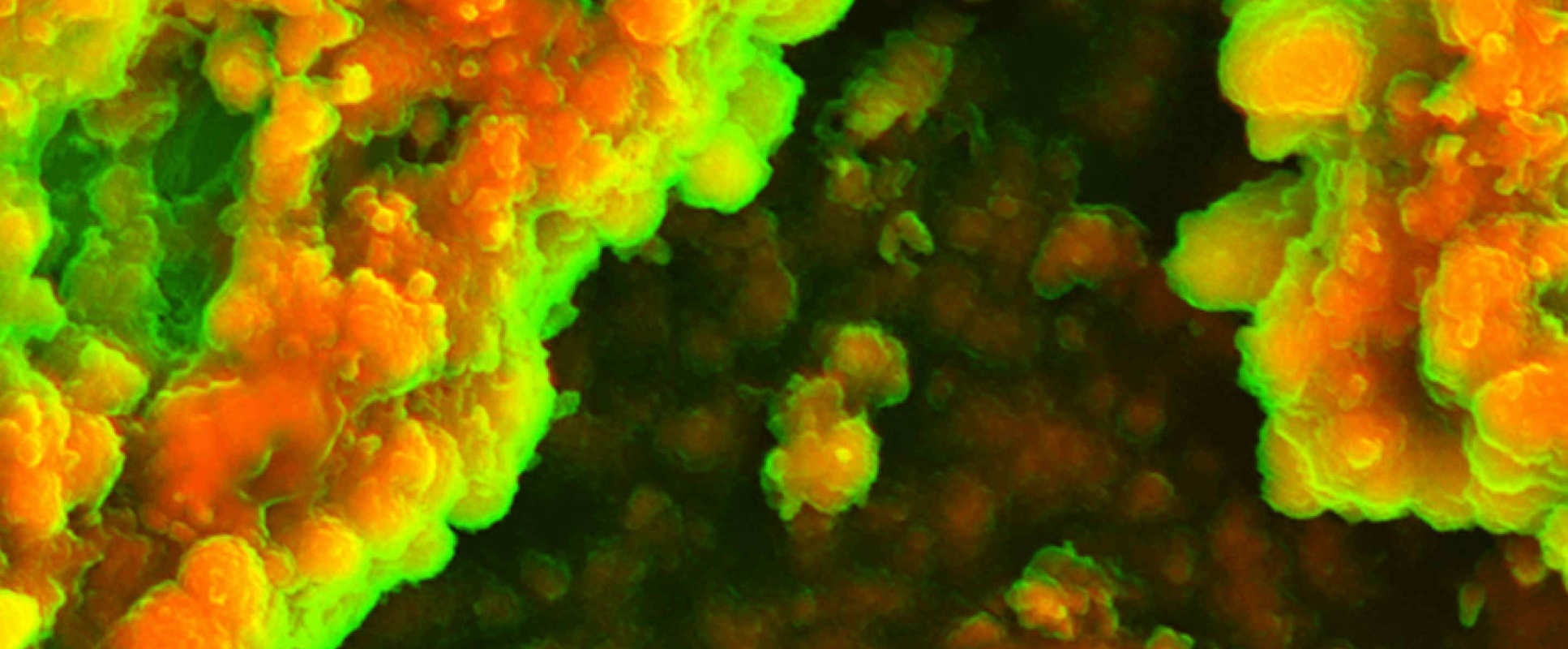
Contact
- CRUK Advanced Clinician Scientist
- Clinical Reader in Molecular Haemato-Oncology
+44 (0)20 3313 4017
holger.auner04@imperial.ac.uk
Areas of research
Proteotoxic stress and metabolism
Myeloma cells are characterised by a unique sensitivity to inhibitors of the proteasome, which is responsible for the controlled degradation of most cellular proteins that have become damaged or are otherwise unwanted. Nevertheless, resistance to proteasome inhibitors occurs in essentially all patients to varying degrees. Accumulation of misfolded proteins in the endoplasmic reticulum (ER), which triggers proteotoxic ‘ER stress’, is widely believed to be the main mechanism of action of proteasome inhibitors. However, data from our lab and other research groups suggest complex interactions between proteasomal protein degradation and multiple metabolic processes. Our aim is to find metabolic and proteostatic vulnerabilities that we can exploit therapeutically.
Tissue biophysics in myeloma biology
Several important aspects of cancer cell biology are influenced by mechanical cues from the surrounding tissue. In particular, mechanical interactions and matrix remodelling have been shown to govern cancer cell metabolism. Tissue stiffness also impacts on normal haematopoiesis, and mechanical cues are known to modulate therapeutic responses. Moreover, we have shown that proteostasis-targeting drugs can alter tissue physical properties. We aim to understand how tissue stiffness and nutrient availability act together to rewire metabolic networks and regulate drug responses in myeloma.
Results
- Showing results for:
- Reset all filters
Search results
-
Conference paperSaavedra-Garcia P, Al-Sadah HA, Penfold L, et al., 2019,
Integrated Systems Level Examination of Proteasome Inhibitor Stress Recovery in Myeloma Cells Reveals Druggable Vulnerabilities Linked to Multiple Metabolic Processes
, 61st Annual Meeting and Exposition of the American-Society-of-Hematology (ASH), Publisher: AMER SOC HEMATOLOGY, ISSN: 0006-4971 -
Conference paperBrown SR, Hall A, Kendall J, et al., 2019,
Muktwelve: A Randomized Phase II Trial of Selinexor, Cyclophosphamide and Prednisolone Vs Cyclophosphamide and Prednisolone in Relapsed or Refractory Multiple Myeloma (RRMM) Patients
, 61st Annual Meeting and Exposition of the American-Society-of-Hematology (ASH), Publisher: AMER SOC HEMATOLOGY, ISSN: 0006-4971- Author Web Link
- Cite
- Citations: 1
-
Journal articleBringhen S, Milan A, D'Agostino M, et al., 2019,
Prevention, monitoring and treatment of cardiovascular adverse events in myeloma patients receiving carfilzomib - A Consensus Paper by the European Myeloma Network and the Italian Society of Arterial Hypertension
, Journal of Internal Medicine, Vol: 286, Pages: 63-74, ISSN: 0954-6820The novel proteasome inhibitor carfilzomib alone or in combination with other agents is already one of the standard therapies in relapsed and/or refractory multiple myeloma (MM) patients and produces impressive response rates in newly diagnosed MM as well. However, carfilzomib-related cardiovascular adverse events (CVAEs) - including hypertension (all grades: 12.2%; grade ≥3: 4.3%), heart failure (all grades: 4.1%; grade ≥3: 2.5%) and ischemic heart disease (all grades: 1.8%; grade ≥3: 0.8%) - may lead to treatment suspensions. At present, there are neither prospective studies nor expert consensus on the prevention, monitoring and treatment of CVAEs in myeloma patients treated with carfilzomib. An expert panel of the European Myeloma Network in collaboration with the Italian Society of Arterial Hypertension and with the endorsement of the European Hematology Association aimed to provide recommendations to support health professionals in selecting the best management strategies for patients, considering the impact on outcome, the risk-benefit ratio of diagnostic and therapeutic tools and thereby to achieve myeloma response with novel combination approaches, while preventing CVAEs. Patients scheduled to receive carfilzomib need a careful cardiovascular evaluation before treatment and an accurate follow-up during treatment. A detailed clinical assessment before starting carfilzomib treatment is essential to identify patients at risk for CVAEs, and accurate monitoring of blood pressure and of early signs and symptoms suggestive of cardiac dysfunction remains pivotal to safely administer carfilzomib without treatment interruptions or dose reductions. This article is protected by copyright. All rights reserved.
-
Journal articleTornatore L, Capece D, D'Andrea D, et al., 2019,
Clinical proof of concept for a safe and effective NF-κB-targeting strategy in multiple myeloma
, British Journal of Haematology, Vol: 185, Pages: 588-592, ISSN: 1365-2141 -
Journal articleParzych K, Saavedra Garcia P, Valbuena G, et al., 2019,
The coordinated action of VCP/p97 and GCN2 regulates cancer cell metabolism and proteostasis during nutrient limitation
, Oncogene, Vol: 38, Pages: 3216-3231, ISSN: 0950-9232VCP/p97 regulates numerous cellular functions by mediating protein degradation through its segregase activity. Its key role in governing protein homoeostasis has made VCP/p97 an appealing anticancer drug target. Here, we provide evidence that VCP/p97 acts as a regulator of cellular metabolism. We found that VCP/p97 was tied to multiple metabolic processes on the gene expression level in a diverse range of cancer cell lines and in patient-derived multiple myeloma cells. Cellular VCP/p97 dependency to maintain proteostasis was increased under conditions of glucose and glutamine limitation in a range of cancer cell lines from different tissues. Moreover, glutamine depletion led to increased VCP/p97 expression, whereas VCP/p97 inhibition perturbed metabolic processes and intracellular amino acid turnover. GCN2, an amino acid-sensing kinase, attenuated stress signalling and cell death triggered by VCP/p97 inhibition and nutrient shortages and modulated ERK activation, autophagy, and glycolytic metabolite turnover. Together, our data point to an interconnected role of VCP/p97 and GCN2 in maintaining cancer cell metabolic and protein homoeostasis.
This data is extracted from the Web of Science and reproduced under a licence from Thomson Reuters. You may not copy or re-distribute this data in whole or in part without the written consent of the Science business of Thomson Reuters.
